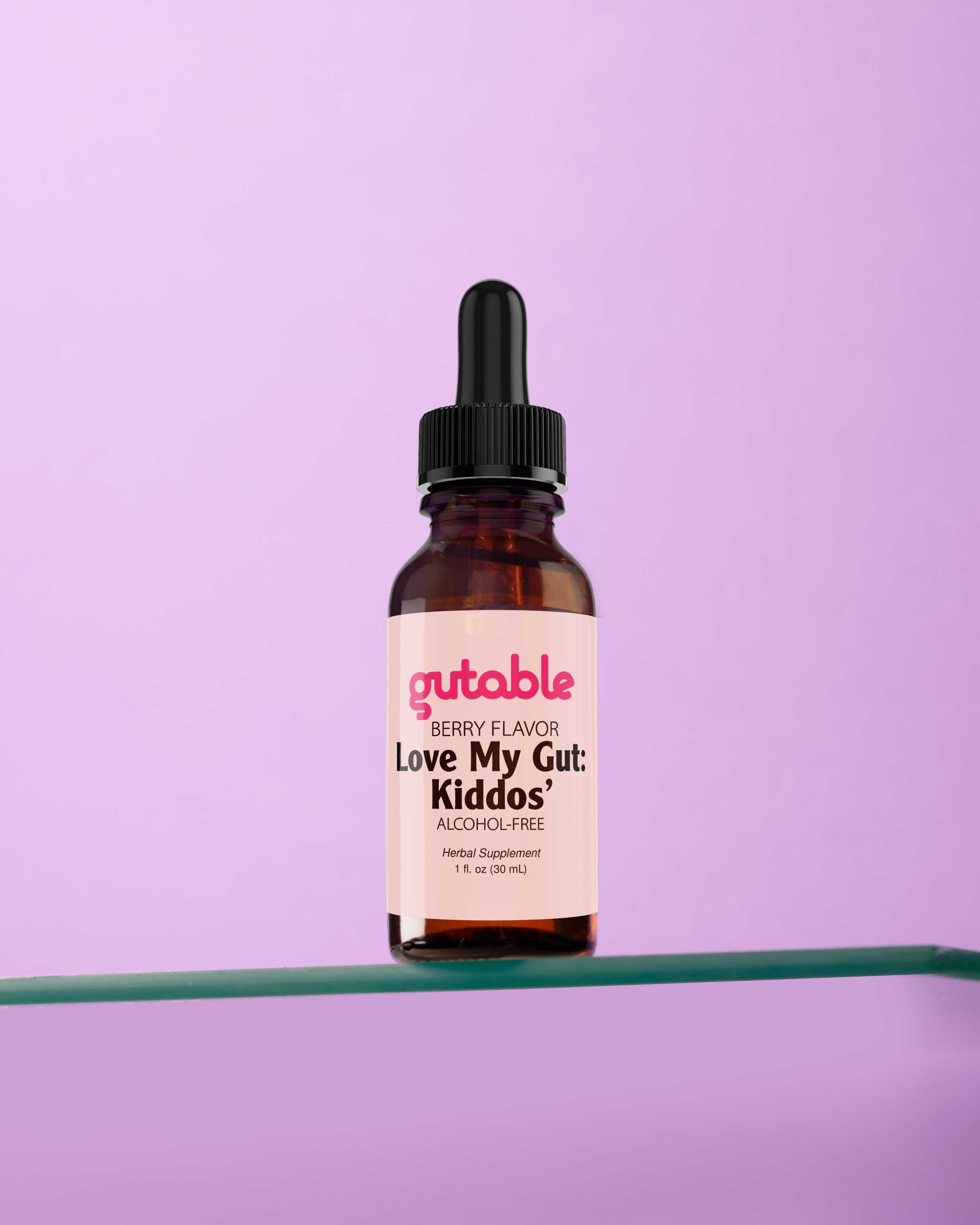While fermented foods are generally celebrated for their health benefits, it's important to acknowledge that they can also trigger histamine reactions in certain individuals. Understanding the connection between histamine and fermented foods can help those experiencing such sensitivities manage their symptoms effectively.
Fermented foods have gained popularity in recent years due to their rich probiotic content and potential benefits for gut health. However, for some people, consuming these foods can lead to histamine reactions, which can manifest in various ways, such as skin rashes, digestive issues, or respiratory problems. It's crucial to recognize these symptoms and seek proper guidance from healthcare professionals when necessary.
In this article, we'll explore the relationship between histamine and fermented foods, provide information on identifying histamine sensitivities, and offer strategies for managing these reactions. We'll also discuss alternative probiotic sources for individuals who are unable to tolerate fermented foods due to histamine issues.
Key Takeaways:
- Fermented foods can cause histamine reactions in some individuals.
- Histamine reactions may present as skin rashes, digestive issues, or respiratory problems.
- Identifying histamine sensitivities is essential for personalized management.
- Healthcare professionals can provide guidance and personalized management plans.
- Alternative probiotic sources can be explored for individuals with histamine sensitivities.
Understanding Histamine Reactions
Histamine reactions can occur when the body's immune system responds to histamine, a compound naturally produced in the body and found in certain foods. Individuals with sensitivities may experience adverse reactions when consuming histamine-rich foods, including some fermented foods. Understanding histamine reactions is important in identifying and managing these sensitivities.
Histamine plays a critical role in allergic responses, triggering the typical symptoms associated with allergies. It is released by the immune system as a defense mechanism when the body encounters allergens. In individuals with sensitivities, histamine can cause an exaggerated immune response, leading to various symptoms.
When it comes to fermented foods, the fermentation process can naturally increase the histamine content. Histamine-rich foods can provoke histamine reactions in susceptible individuals, exacerbating symptoms such as skin rashes, digestive discomfort, headaches, and respiratory problems.
Common Histamine Reactions
| Common Symptoms | Examples |
|---|---|
| Skin rashes and hives | Eczema, itching |
| Digestive issues | Abdominal pain, bloating, diarrhea |
| Headaches and migraines | Throbbing head pain, light sensitivity |
| Respiratory problems | Sneezing, runny nose, coughing |
Note that histamine sensitivities can vary from person to person, with some individuals experiencing mild symptoms while others may have more severe reactions. If you suspect you have a histamine sensitivity, it's best to consult with a healthcare professional for an accurate diagnosis and personalized management plan.
Benefits of Fermented Foods
Fermented foods have gained popularity in recent years due to their numerous health benefits. Not only do they add unique flavors to our meals, but they also provide essential nutrients and play a crucial role in promoting a healthy gut. One of the key reasons for the growing interest in fermented foods is their ability to supply our bodies with beneficial probiotics.
Probiotics are live bacteria and yeasts that are crucial for maintaining a healthy balance of microorganisms in our digestive system. They aid in the digestion and absorption of nutrients, strengthen our immune system, and support overall gut health. By consuming fermented foods, we introduce these beneficial microorganisms into our bodies, thereby boosting our gut flora and promoting optimal digestion.
Fermented foods are a natural source of probiotics, making them an excellent addition to a healthy diet.
In addition to supplying probiotics, fermented foods have other remarkable health benefits as well. Let's take a closer look:
-
Nutrient-rich: Fermented foods are packed with essential vitamins, minerals, and antioxidants that are beneficial for overall health.
-
Improved digestion: The fermentation process breaks down complex carbohydrates and proteins, making them easier to digest and absorb.
-
Enhanced nutrient absorption: Probiotics in fermented foods help improve the absorption of nutrients, ensuring that our bodies can extract maximum benefits from the food we eat.
-
Reduced inflammation: Some fermented foods, such as kimchi and sauerkraut, contain anti-inflammatory properties that can help alleviate inflammation in the body.
-
Better immune function: Probiotics play a crucial role in supporting the immune system, helping to prevent and fight off infections and diseases.
By regularly incorporating fermented foods into our diet, we can experience these incredible health benefits and contribute to our overall well-being.
Health Benefits of Fermented Foods
If you're curious to learn more about the health benefits of fermented foods, take a look at the table below. It provides a comprehensive overview of some common fermented foods and their specific benefits:
| Fermented Food | Health Benefits |
|---|---|
| Yogurt | Rich in probiotics, calcium, and protein |
| Kefir | Supports digestion, improves bone health |
| Kombucha | Boosts immune system, aids detoxification |
| Sauerkraut | High in fiber, vitamin C, and antioxidants |
| Miso | Source of essential amino acids, supports cardiovascular health |
| Kimchi | Rich in vitamins A and C, promotes gut health |
These are just a few examples of the wide range of fermented foods available. Each one offers its unique benefits, making it easy to find options that suit your dietary preferences and health goals.
Histamine and Fermentation
When it comes to fermented foods, the connection between histamine and the fermentation process is worth exploring. Histamine, a naturally occurring compound in our bodies, plays a crucial role in our immune response. However, some fermented foods can naturally contain higher levels of histamine, which may trigger reactions in sensitive individuals.
During the fermentation process, certain beneficial bacteria convert the sugars in food into alcohol, acids, or gases. This transformative process creates the unique flavors and textures we love in fermented foods like cheese, sauerkraut, and kimchi. However, it also produces histamine as a byproduct.
For most people, consuming histamine-rich fermented foods is not an issue. The body's natural enzymes can break down and process histamine efficiently. However, for those with histamine sensitivities or enzyme deficiencies, the accumulation of histamine from fermented foods can lead to an array of unpleasant symptoms.
"The fermentation process can increase the histamine content in certain foods, making them potential triggers for individuals with histamine sensitivities."
If you are prone to histamine reactions, it is essential to be aware of the fermentation process and its potential impact on histamine levels in food. Monitoring your intake of histamine-rich fermented foods and understanding your body's response can help you determine which foods to limit or avoid.
Identifying Histamine Sensitivities
This section will be discussed in detail in Section 5.
In the next section, we will explore how individuals can identify histamine sensitivities by recognizing common symptoms and seeking professional guidance. Stay tuned to learn more about managing histamine reactions and making informed choices when it comes to fermented foods and histamine-rich foods.
Identifying Histamine Sensitivities
If you suspect that you may have histamine sensitivities, it is important to understand the common symptoms associated with this condition. Histamine reactions to fermented foods can manifest in various ways and may differ from person to person. Here are some key signs to look out for:
- Skin rashes: Itchy, red patches or hives on the skin may indicate a histamine sensitivity.
- Digestive issues: Symptoms such as bloating, abdominal pain, diarrhea, or nausea after consuming fermented foods may suggest a histamine reaction.
- Respiratory problems: Histamine sensitivities can sometimes trigger respiratory symptoms like wheezing, difficulty breathing, or a runny nose.
It is essential to remember that these symptoms can overlap with other conditions, so it is crucial to consult a healthcare professional for a proper diagnosis. They can evaluate your symptoms, consider your medical history, and conduct any necessary tests to determine if you have histamine sensitivities.
Common Histamine-Rich Fermented Foods
If you experience histamine sensitivities, it is important to be aware of the commonly consumed fermented foods that may be higher in histamine. While fermented foods can offer numerous health benefits, individuals with sensitivities need to make informed choices to manage their symptoms effectively.
Here is a list of some histamine-rich fermented foods:
| Fermented Food | Histamine Level |
|---|---|
| Aged cheeses | High |
| Sauerkraut | Moderate |
| Kombucha | Moderate |
It is worth noting that the histamine levels can vary depending on the specific product and the fermentation process used. For individuals with histamine sensitivities, it may be beneficial to limit or avoid these particular foods, especially those with high histamine levels.
Remember, this list is not exhaustive, but it provides an introduction to the histamine-rich fermented foods commonly consumed. If you suspect histamine sensitivities, it is always best to consult with a healthcare professional for personalized advice and guidance.
Managing Histamine Sensitivities
If you experience histamine sensitivities but still want to enjoy the benefits of fermented foods, there are several strategies you can try. By making informed choices and implementing these practical tips, you can manage your sensitivities and continue to support your gut health.
1. Explore Different Fermentation Methods
Not all fermentation methods produce high levels of histamine. Experiment with different types of fermented foods and explore alternative preparation techniques. For example, opt for shorter fermentation times or try fermenting foods in a controlled environment to reduce histamine formation.
2. Choose Lower Histamine Options
While some fermented foods like sauerkraut and aged cheeses are known to be higher in histamine, there are also options that are lower in histamine. Consider incorporating foods such as yogurt, kefir, or homemade fermented vegetables, which may be better tolerated.
3. Support Gut Health
Building a healthy gut can help minimize histamine reactions. Include gut-friendly foods in your diet, such as fiber-rich fruits, vegetables, and prebiotic-rich foods like onions and garlic. Additionally, consider taking probiotic supplements to support a balanced gut microbiome.
4. Monitor Your Intake
Pay attention to how your body reacts to different fermented foods. Keep a food diary to track the foods you consume and any symptoms that may arise. This can help you identify specific triggers and make more informed choices moving forward.
"By implementing these practical strategies, individuals with histamine sensitivities can enjoy the benefits of fermented foods while minimizing adverse reactions."
5. Seek Professional Advice
If you are struggling to manage your histamine sensitivities on your own, it's essential to seek professional guidance. Allergists, dietitians, or naturopaths can provide personalized advice and help develop a tailored management plan to meet your specific needs.
6. Consider Fermented Food Alternatives
If fermented foods continue to trigger histamine reactions, there are alternative ways to support your gut health. Look into other sources of probiotics such as prebiotic supplements, probiotic capsules, or plant-based options like tempeh or miso.
With the right strategies in place, managing histamine sensitivities doesn't mean giving up on fermented foods entirely. By finding a balance that works for you, you can continue to enjoy the benefits while minimizing discomfort and supporting your overall health.
| Fermented Foods | Histamine Level |
|---|---|
| Aged cheeses (e.g., cheddar, parmesan) | High |
| Sauerkraut | High |
| Kombucha | High |
| Yogurt | Low to moderate |
| Kefir | Low to moderate |
| Homemade fermented vegetables | Low to moderate |
Professional Guidance
When it comes to managing histamine reactions to fermented foods, seeking professional guidance is vital. Healthcare professionals, such as allergists, dietitians, or naturopaths, can provide the professional expertise and personalized management plans necessary for understanding and addressing histamine sensitivities.
With their extensive knowledge and experience, these experts can offer:
Comprehensive Analysis and Diagnosis
By consulting with professionals, individuals can receive a comprehensive analysis of their symptoms and confirm whether histamine reactions are to blame. Through diligent assessments and diagnostic tests, healthcare experts can determine the underlying causes of the sensitivities and help individuals better understand their unique situation.
Personalized Management Plans
Once diagnosed, healthcare professionals can tailor management plans to meet the specific needs of each individual. A personalized approach ensures that the recommended strategies for histamine reaction management are suitable, practical, and effective.
For individuals experiencing severe or chronic symptoms, seeking professional guidance becomes even more crucial. These experts can offer specialized insight, advanced treatment options, and ongoing support to help individuals effectively manage their histamine sensitivities.
Exploring Alternative Probiotic Sources
For individuals who experience histamine reactions to fermented foods, there are alternative sources of probiotics available. These alternatives can provide the necessary gut health support without triggering unpleasant symptoms. Here are some options to consider:
1. Prebiotic Supplements
Prebiotics are a type of fiber that nourish the beneficial bacteria in your gut. Taking prebiotic supplements can help support a healthy gut microbiome, even if you can't consume fermented foods. Some popular prebiotic supplements include:
- Chicory root
- Inulin
- Acacia gum
2. Probiotic Capsules
Probiotic capsules contain live beneficial bacteria that can help rebalance your gut microbiome. These capsules are available in various strains and strengths, allowing you to choose the one that suits your needs best. Look for probiotic brands that prioritize quality and offer a diverse range of strains.
3. Plant-Based Alternatives
If you prefer a more natural approach, there are plant-based alternatives to fermented foods that can provide probiotic benefits. These include:
- Fermented vegetables, such as kimchi
- Miso soup made with non-soy ingredients
- Plant-based kefir made from coconut milk or water kefir made from fruit juices
"Exploring alternative probiotic sources can be a game-changer for individuals who cannot tolerate fermented foods due to histamine reactions. These options provide an opportunity to support gut health without compromising on beneficial bacteria."
Remember, it's essential to consult with a healthcare professional or registered dietitian before making any significant dietary changes. They can guide you toward the alternative probiotic sources that align with your specific needs and sensitivities.
| Probiotic Source | Description | Benefits |
|---|---|---|
| Prebiotic Supplements | Contains non-digestible fibers that nourish beneficial gut bacteria. | Supports a healthy gut microbiome, improves digestion, enhances nutrient absorption. |
| Probiotic Capsules | Contains live beneficial bacteria strains in capsule form. | Rebalances gut microbiome, strengthens immune system, reduces digestive issues. |
| Plant-Based Alternatives | Fermented non-dairy products and plant-based foods. | Provides probiotics without histamine reactions, supports gut health, increases diversity of gut bacteria. |
Conclusion
In conclusion, histamine reactions to fermented foods can be a concern for some individuals. While fermented foods offer numerous health benefits and probiotics, it's important to be aware that they can potentially trigger adverse reactions in those with histamine sensitivities. Understanding and managing these sensitivities is key to maintaining overall well-being.
By identifying the symptoms of histamine sensitivities, individuals can better determine if they are experiencing a histamine reaction to fermented foods. Seeking guidance from healthcare professionals, such as allergists or dietitians, can provide personalized management strategies for individuals with severe or chronic symptoms.
Managing histamine sensitivities involves being mindful of histamine-rich fermented foods and making informed choices. Exploring alternative sources of probiotics, such as prebiotic supplements or probiotic capsules, can provide options for those who cannot tolerate fermented foods. Additionally, supporting gut health through a balanced diet and lifestyle is crucial for managing histamine reactions and maintaining optimal well-being.
In conclusion, while histamine reactions to fermented foods may pose challenges for some individuals, with proper awareness and management, it is possible to continue enjoying the benefits of fermented foods while minimizing adverse reactions. By listening to your body, seeking professional guidance when needed, and making informed choices, you can strike a balance that supports your overall health and well-being.
FAQ
Can fermented foods cause histamine reactions?
Yes, fermented foods can cause histamine reactions in some individuals. While fermented foods are generally beneficial for gut health, certain people may experience adverse reactions due to histamine content in these foods.
What are histamine reactions?
Histamine reactions, also known as histamine intolerances or sensitivities, occur when the body's immune system overreacts to the presence of histamine. This can lead to various symptoms such as skin rashes, digestive issues, and respiratory problems.
Are fermented foods good for you?
Yes, fermented foods offer numerous health benefits. They are rich in beneficial probiotics that help promote gut health and support a balanced immune system. However, individuals with histamine sensitivities should exercise caution when consuming fermented foods.
How does fermentation affect histamine levels?
During the fermentation process, bacteria convert sugars in food into alcohol or acids. This process can also result in the production of histamine. Some fermented foods, therefore, contain higher levels of histamine, which can trigger reactions in susceptible individuals.
How can I identify if I have a histamine sensitivity?
Histamine sensitivity can vary from person to person, but common symptoms include skin flushing, hives, itching, digestive discomfort, headaches, and nasal congestion. If you suspect you have a histamine sensitivity, it's best to consult a healthcare professional for a proper diagnosis.
What are some histamine-rich fermented foods?
Common histamine-rich fermented foods include aged cheeses (such as blue cheese), sauerkraut, soy sauce, kombucha, and certain wines. It's essential for individuals with histamine sensitivities to be aware of these foods and consider alternatives.
How can I manage histamine sensitivities while still enjoying fermented foods?
If you have histamine sensitivities, there are ways to manage your reactions. You can try different fermentation methods, opt for lower histamine options, or explore alternative sources of beneficial probiotics. Balancing your gut health through diet and supplementation may also help.
Should I seek professional guidance for histamine reactions?
It is highly recommended to seek guidance from healthcare professionals, such as allergists, dietitians, or naturopaths, for a comprehensive understanding of histamine reactions and personalized management plans. This is especially important for individuals with severe or chronic symptoms.
What are alternative sources of probiotics for individuals with histamine sensitivities?
If you cannot tolerate fermented foods due to histamine reactions, there are alternative probiotic sources available. These include prebiotic supplements, probiotic capsules, or plant-based alternatives. It's important to find the best option that suits your specific needs and sensitivities.
What should I take away from this information?
Understanding histamine reactions to fermented foods is essential for managing sensitivities. While fermented foods offer numerous benefits for most individuals, those with histamine sensitivities may need to make informed choices and seek professional guidance to maintain their well-being.

































